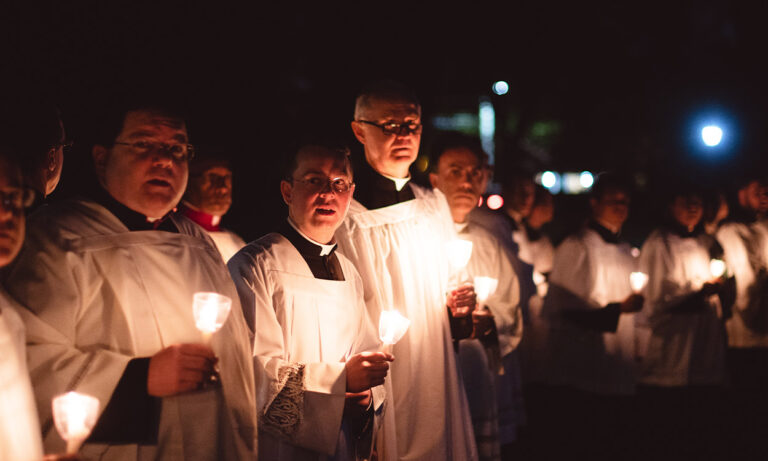US Catholic group spent millions to track and identify priests using gay dating apps

It’s recently been revealed by The Washington Post that a conservative Catholic group based in Colorado in the US spent millions to obtain data that tracked and identified priests using gay dating apps. The confidential information was later shared with bishops nationwide.
The controversial abuse of power and violation of privacy was conducted by the non-profit Catholic Laity and Clergy for Renewal and discovered by the American daily newspaper through tax records which described the project’s mission as a means to “empower the church to carry out its mission” and provide bishops with “evidence-based resources” to help further identify weaknesses in current training.
As if this news wasn’t shocking enough, it’s also been reported that the group has reportedly spent at least $4 million on the project and shared the information with dozens of bishops across the country.
While the exact impact such data will have on priests is unclear as of now, an anonymous person who spoke with The Washington Post explained that information discovered via the Renewal project may cause Catholic members not to receive promotions or even to be pushed into an early retirement.
Participants in the project were also said to be involved in the outing of prominent Catholic pastor, Monsignor Jeffrey Burrill, who stepped down from his post as secretary general of the US Conference of Catholic Bishops (USCCB) in July 2021 after religious news site, The Pillar, used commercially available data to track his use of LGBTQIA+ “hookup apps” and visits he paid to a gay bar and a Las Vegas bathhouse.
Following Burrill’s resignation and the latest discovery of mobile app tracking, LGBTQIA+ advocates and privacy specialists have been raising alarms about this specific type of invasion of privacy that is directly targeting vulnerable people.
“The power of this story is that you don’t often see where these practices are linked to a specific person or group of people. Here, you can clearly see the link,” said Justin Sherman, a senior fellow at Duke University’s public policy school and expert on data privacy issues, to The Post.
Sherman added that data privacy laws in the US are limited, noting: “You can count them on one or two hands.”
Meanwhile, a spokesperson for Catholic Laity and Clergy for Renewal told the publication that its president, Jayd Henricks, would give an interview about the project. However, several requests for an interview or comment were ignored.
Coincidentally, Henricks did write a first-person piece published on Wednesday 8 March 2023 on the website First Things, in which he stated that he has “been proud to be a part of [the] group” and justified its actions by adding: “After all, data is used by all major corporations, so why not the Church?”
It should be noted however that some in the Catholic church criticised the use of surveillance to target priests because of their sexual orientation. A USCCB member who knows Burrill stated: “Revealing information that harms a person’s reputation without an objectively valid reason—even if it’s true—is considered a sin.”





